News archive
On this page you can search for older news. Choose a topic, type of news or enter your own keyword to filter out news.
View compact
Hi Nathalie Frisendahl, PhD student at the Division of Physiotherapy. On June 16 you will defend your thesis ”Injurious falls in older adults: early identification of individuals at risk of falls—from observational studies to implementation”, what is the main focus of the thesis?
News
The SiiUss project (Sustainability, Inclusiveness, Integration for University Support Services), is a collaborative initiative between Karolinska Institutet and the University of the Philippines Diliman. The project introduces the SiiUss course, a learning platform designed to enhance professional development and foster sustainability, inclusiveness, and integration within university support services. The course just started with participants from both universities.
News
In a recently published study, researchers at the Institute for Environmental Medicine (IMM), Karolinska Institutet show that girls with childhood asthma or food allergies are at increased risk of premenstrual disorders in adulthood.
News
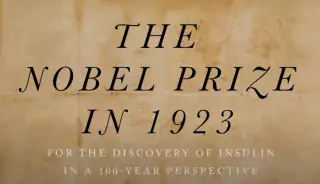
This year marks one hundred years since Frederick Banting and John MacLeod were awarded the Nobel prize for the discovery of insulin. The discovery has saved the lives of millions of people with diabetes worldwide, but the price is also one of the most debated. In their photo documentary, Professors Lars Rydén and Jan Lindsten talk about the history of the discovery, the problems associated with the award, and the importance the findings have had for today's treatment of diabetes.
News
In a nationwide Swedish study involving more than 12,000 individuals with nonalcoholic fatty liver disease (NAFLD), researchers found a significantly increased risk of severe infections requiring hospital admission. The study was published in Clinical Gastroenterology and Hepatology.
News
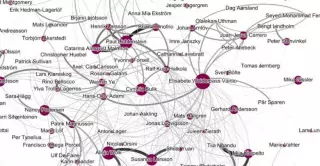
Research Network 'KI Lifestyle4Health' collaborates with the University Library to create KI authors- MeSH terms networks.
News

In FORTE's call in the field of Elderly 2023 (Knowledge and working methods for a more equal, dignified and participatory ageing), four researchers at NVS and one affiliated researcher will share just over SEK 60 million. NVS congratulates them all!
News
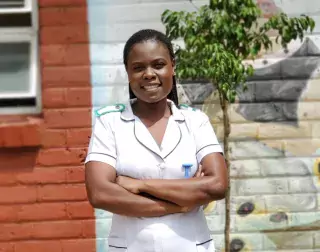
Since attending KI’s capacity-building programme for leaders in women’s and children’s health, Tiwonge Gondwe-Mwangonde has used knowledge gained from the course to reduce the incidence of birth injuries in Malawi. She is now launching a new training programme for the region’s midwives.
News
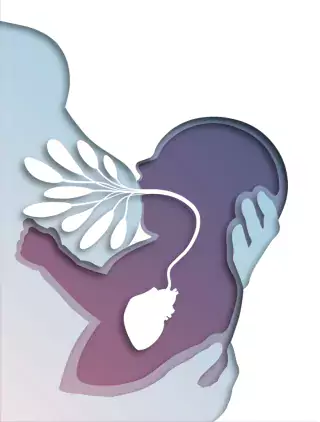
A new study demonstrates that the dietary fatty acid gamma-linolenic acid (GLA) derived from the mother's milk triggers a metabolic shift essential for heart cell maturation in newborn mice. Researchers at Karolinska Institutet contributed to the study published in Nature in May 2023.
While the relevance for human heart development still needs to be addressed, GLA is found in human breast milk and the GLA-activated nuclear receptors are highly conserved between mice and humans.
While the relevance for human heart development still needs to be addressed, GLA is found in human breast milk and the GLA-activated nuclear receptors are highly conserved between mice and humans.
News
Hi Jakob Norgren, PhD student at the Division of Clinical Geriatrics. On June 12 you will defend your thesis ”The impact of macronutritional composition and ketosis on cognitive health : from normal aging to Alzheimer’s disease”, what is the main focus of the thesis?
News
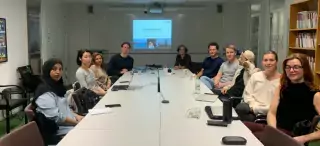
Students from the study programmes in nursing, radiography, medicine and psychology attended the new elective course in Sustainable Health and Development, 7.5 credits, which is offered for the first time in the spring term of 2023. The course is developed by the Centre of Excellence for Sustainable Health, which is a cooperation between KI and Makerere University.
News
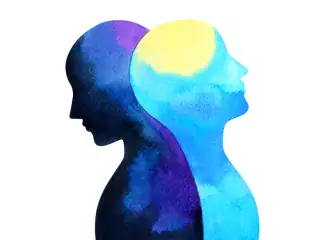
Bipolar disorder underlies roughly five percent of all suicides among young people. Previous studies also show that there is often a long delay between the onset of bipolarism and its correct diagnosis and treatment. Researchers at Karolinska Institutet now show that fewer boys commit suicide in Swedish regions where bipolar diagnoses are more common. The study, which is published in JAMA Psychiatry, could contribute to more proactive care for reducing the number of suicides.
News
Graduation time at Karolinska Institutet. At KI, more than a thousand students graduate this summer. We asked some of them what they are going to do after graduation and, of course, asked them to share some of their favourite memories from their time as a KI-student.
News
We would like to remind you never to leave your belongings out of sight.
News
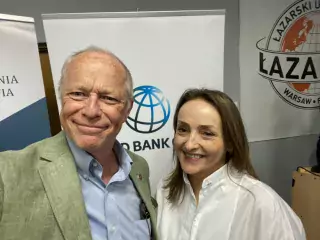
Professor Stefan Swartling Peterson was invited to present on “prevention” in Warsaw, Poland, as the World Bank’s Anna Koziel organized a seminar May 19th to inspire prevention stakeholders from Poland and Western Ukraine. The challenge is to conceive an Non Communicable Disease prevention agenda that involves more than health care and to develop Primary Health Care. We foresee further collaboration opportunities as this initiative develops.
News
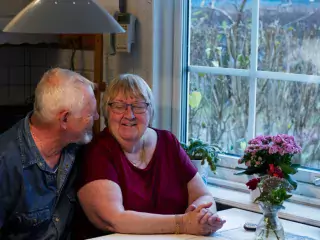
The Aging Research Center at Karolinska Institutet, in collaboration with the National Competence Centre for Relatives (Nka), is launching a nationwide survey to gain a better understanding of the characteristics of older informal caregivers in Sweden.
News
Therese Scott Duncan, postdoc at the Department of Learning, Informatics, Management and Ethics, is in a new study investigating how Lead Patients self-care has been received by healthcare professionals. The study, ”Empowered patients and informal caregivers as partners? A survey study of healthcare professionals’ perceptions”, is published in BMC Health Services Research.
News
In a nationwide Swedish study of more than 12,000 patients with microscopic colitis (MC), researchers from Sahlgrenska University Hospital and Karolinska Institutet found an increased risk of acute pancreatitis compared to the general population. The study has been published in The American Journal of Gastroenterology.
News
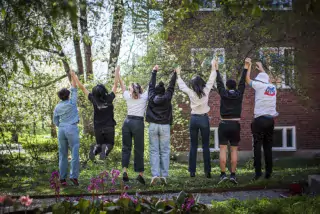
Movement and physical activity were in focus when the KI Impact Challenge event was arranged for the first time after the pandemic. About 45 students from Karolinska Institutet were tasked to come up with what is needed to make young people become more physically active. To help them, they had 30 high school students and the various steps in design thinking, a systematic problem-solving method.
News
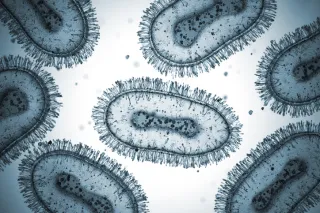
Vaccines against smallpox given until the mid-1970s offer continuing cross-reactive immunity to mpox (previously known as monkeypox), researchers from Karolinska Institutet report in a study published in the scientific journal Cell Host & Microbe.
News
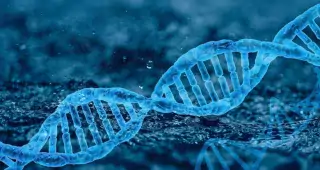
A new Swedish study on the etiology of neuromuscular disorders has been published in the scientific journal Frontiers in Neurology. The study was carried out by researchers in the Rare Diseases group at the Department of Molecular Medicine and Surgery, Karolinska Institutet, in collaboration with doctors at Karolinska University Hospital.
News
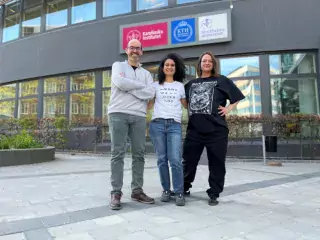
Researchers at Karolinska Institutet have developed a molecular method able to detect whether or not bacteria respond to antibiotics within minutes. The findings are presented in the journal Nature Microbiology and the researchers now hope to develop a simple test for doctors to use.
News

This year’s Grand Silver Medals are awarded to Göran K Hansson och Jan-Inge Henter. The medal can be awarded to a person who has made tremendous efforts to support the activities of Karolinska Institutet’s mission and is awarded during the installation ceremony in Aula Medica on October 12.
News
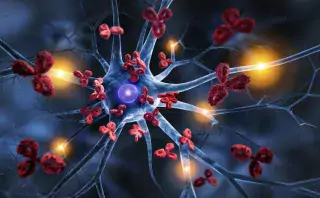
Researchers at Karolinska Institutet have found further evidence for how the Epstein-Barr virus can trigger multiple sclerosis or drive disease progression. A study published in Science Advances shows that some individuals have antibodies against the virus that mistakenly attack a protein in the brain and spinal cord.
News

The European University of Brain and Technology, NeurotechEU, of which Karolinska Institutet is one of nine partners, is pleased to announce the availability of ten competitive funds for short-term travel for faculty, staff, postdoctoral fellows, students and/or trainees between the partner institutions to plan or conduct collaborative projects.
News

Anna Falk at the research group Thoracic Surgery, Department of Molecular Medicine and Surgery, will defend her thesis "Depression and delirium in cardiac surgery patients" on May 26th, 2023. Main Supervisor is Malin Stenman.
News
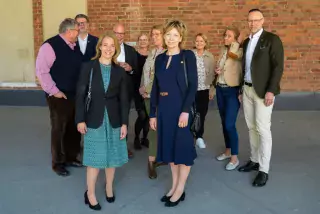
An important meeting was held on 11 May in Aula Medica for the KI-Region Stockholm management group. It turned out to be a packed strategy day that focused on common issues facing the group, including the work following on from the recently released Swedish Research Council audit, conducted under the ALF evaluation.
News

On May 12 more than 850 people gathered at Stockholm City Hall to celebrate Karolinska Institutet’s 152 new doctors and honorary doctors Wilhelmina Hoffman and Fredrik Lundberg.
News
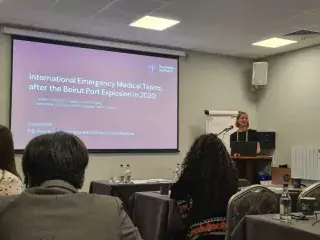
Global Disaster Medicine - Health Needs and Response at KI was represented in several ways at this year’s WADEM (the World Association for Disaster and Emergency Medicine) congress, including with presentations and posters displaying new research conducted by the group.
News
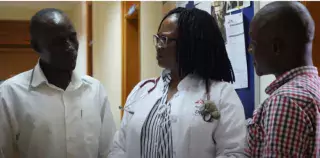
Juliet Mwanga-Amumpaire is a paediatrician and Associate Professor of paediatrics at Mbarara University with over ten years of experience conducting clinical research. She is currently the director of Epicentre Mbarara Research Centre run by Médecins Sans Frontières that conducts health related research aiming to guide policy for stakeholders in health. She recently pursued her PhD where she studied the quality of care at private health facilities in Uganda.
News
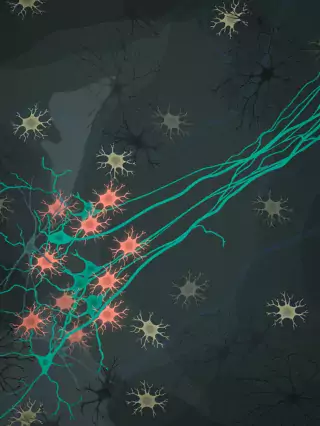
New findings on how a subset of immune cells in the brain is involved in the establishment of a neuronal system controlling cognition.
News
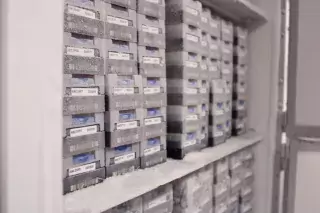
Biobank Sweden has teamed up with the Swedish regions and the National Pandemic Centre (NPC) at Karolinska Institutet to produce a new process that gives researchers access to 1.5 million COVID-19 samples. The samples are stored at the NPC and researchers applying to use them must first seek ethical approval.
News

The third installment in the seminar series KI Contributes explored the health crises created by war and armed conflict, through the medium of visual art. An Armenian artist and a Swedish surgeon shared their experiences of war and how humans live through it and try to make sense of their difficult experiences.
News

350 cardamom buns awaited KI’s students as they gathered for a coffee and chat with the new president Annika Östman Wernerson, who had arranged the informal meeting with the student unions to encourage a closer dialogue with the university management.
News
Karolinska Institutet has decided to award Johan Hartman and Mattias Rantalainen the 2023 Prize for Innovation and Utilization. They are rewarded for improving cancer diagnostics with innovative research and inspiring working methods.
News
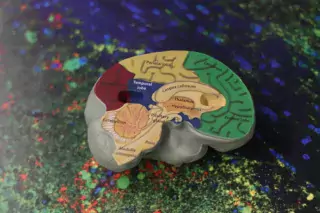
Between 13 and 19 March 2023, neuroscientists around the world took the initiative to spread the word about the importance of brain science as part of the "Brain Awareness Week". The Strategic Neuroscience Research Network (StratNeuro) at Karolinska Institutet took the opportunity to initiate a recurring outreach event to spark enthusiasm and raise awareness for neuroscience research, which was also part of the global campaign.
News
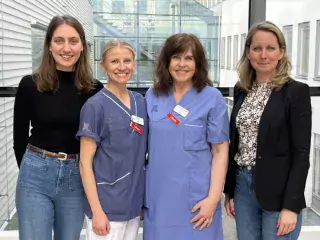
Researchers from Karolinska Institutet and Sachs’ Children and Youth Hospital have mapped the immune system in the gut of children with inflammatory bowel disease (IBD). The results, which were published in Cell Reports Medicine, can be used to design more targeted therapies.
News

The first article based on the most recent SWEOLD data collection entitled “Impact of the COVID-19 pandemic on Swedish adults aged 77 years and older: Age differences in lifestyle changes”, has recently been published in the Scandinavian Journal of Public Health.
News
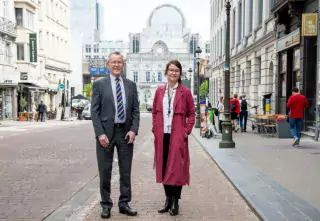
Alone, remotely, in the middle of a pandemic – this is how life in the Brussels office of the University Alliance Stockholm Trio began for the EU veteran Dan Andrée. It went at half-speed at first, but now, two and half years later, the office in the EU’s political cradle is bursting with activities.
News
Breast cancer is the most common cancer among women and the likelihood of surviving the disease is higher if the cancer is detected early and the tumour is relatively small and not very aggressive.
News
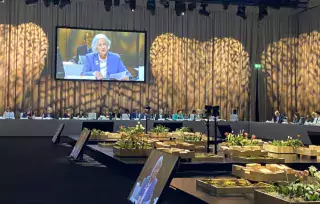
As part of the Swedish presidency of the EU's Council of Ministers, the health ministers of EU countries were invited to an informal meeting in Stockholm on the 4th and 5th of May. The meting concerned issues of preparedness and securing access to innovative and established medicines.
News
Associate Professor Charlotte Rolny, Associate Professor Ola Larsson and PhD Margarita Bartish has published a Perspective article in Nature Reviews Cancer. Perspective articles provide a forum for opinionated discussions of a field or topic, as well as describing historical foundations and influences, emerging research trends and techniques, and ethical, legal and societal issues.
News

Researchers at the Department of Physiology and Pharmacology (FyFa) is awarded the SSMF (Svenska Sällskapet för medicinsk forskning) Postdoctoral Grant of SEK 3 million for three years.
News
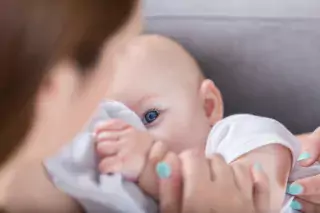
Sons of women with polycystic ovary syndrome (PCOS) have a twofold increased risk to develop obesity, according to a study published in Cell Reports Medicine. According to the researchers from Karolinska Institutet the findings highlight a previously unknown risk of passing PCOS-related health problems across generations through the male side of a family
News

Are international field hospitals always needed? And do we always need to send medicines to disaster-stricken areas? These were two myths that Johan von Schreeb discussed in his keynote when EU’s health ministers gathered in Stockholm.
News
Professor Magnus Ingelman-Sundberg has been awarded an ERC Proof of Concept Grant, which is aimed at researchers who have previously been funded by the European Research Council and now want to explore the innovation potential of their previous project. The grant will be used to further develop a hepatic model for liver disease and identify potential new drugs and drug targets.
News

An American donor has given USD 3 million to Karolinska Institutet and researcher Erik Berglund, who works at the Department of Molecular Medicine and Surgery and the Department of Clinical Science, Intervention and Technology. The free donation will go towards Dr. Berglund’s specialist fields in transplantation, autoimmunity, and cancer.
News
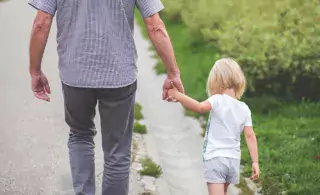
Researchers at Karolinska Institutet and Karolinska University Hospital have together with health economists at Linköping University analyzed costs for various methods to diagnose genetic causes of intellectual disability. The study, published in Scientific Reports, shows that the costs when using whole genome sequencing as a first-line diagnostic test were lower compared to chromosomal microarray analysis.
News
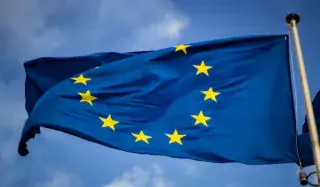
Several KI researchers at the department of Global public Health, are part of an international project that has been awarded 3.7 million Euros. The funding comes from the EU Horizon scheme to help young people aged 12-15 improve their mental health and reduce their risk of chronic illnesses.
News
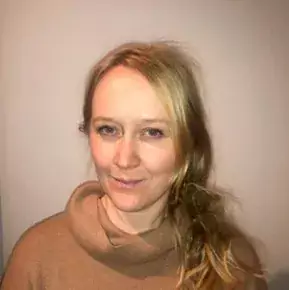
Natalie Lundin at the Orthopaedics research group, the Department of Molecular Medicine and Surgery, will defend her thesis "Pelvic fractures : epidemiology and treatment" on May 12th, 2023.
Main Supervisor is Anders Enocson.
Main Supervisor is Anders Enocson.
News
